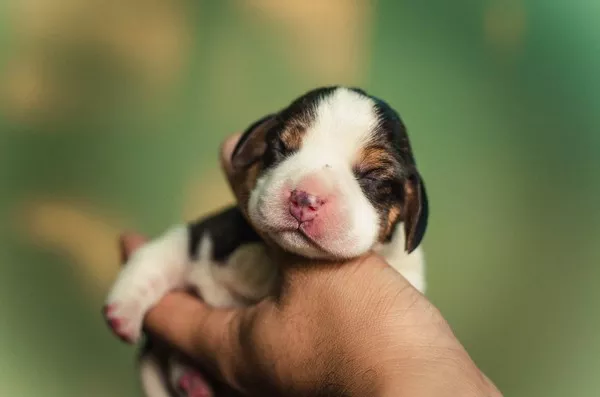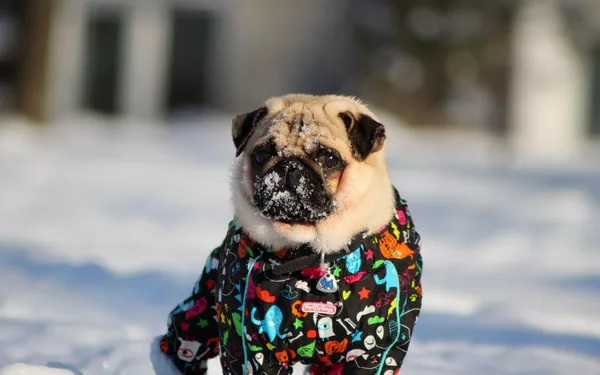Basset Hounds are among the most recognizable dog breeds, known for their distinctive long ears, droopy eyes, and unique, elongated bodies. With their charming appearance and amiable disposition, they have captured the hearts of dog lovers worldwide. However, Basset Hounds come in various sizes, and many prospective pet owners often wonder which Basset Hound breed is the largest. In this comprehensive article, we will explore the different breeds of Basset Hounds, their characteristics, sizes, and other essential information that will help you understand these lovable dogs better.
Understanding the Basset Hound Breed
History and Origin
The Basset Hound’s history dates back to medieval France, where they were bred for hunting small game like rabbits and hares. The term “Basset” is derived from the French word “bas,” meaning low. Their short legs enable them to navigate through dense underbrush, making them excellent scent hounds. Basset Hounds were recognized by the American Kennel Club (AKC) in 1916 and have since gained popularity as companion animals.
Physical Characteristics
Basset Hounds are known for their unique physical attributes, including:
Ears: Their long, droopy ears help to funnel scents toward their nose.
Body: They have a long body and short legs, which gives them their characteristic “dachshund-like” appearance.
Weight: Adult Basset Hounds typically weigh between 45 to 65 pounds (20 to 29 kg).
Height: They usually stand between 11 to 15 inches (28 to 38 cm) at the shoulder.
Temperament
Basset Hounds are known for their friendly and laid-back temperament. They are affectionate, good with children, and generally get along well with other pets. However, they can also be somewhat stubborn and independent, which may present challenges in training.
Different Breeds of Basset Hounds
While the Basset Hound is a specific breed recognized by major kennel clubs, variations exist within the breed. These variations are not separate breeds but rather differences that arise from breeding practices, geographical locations, and lineage. Let’s explore some of the main variations in Basset Hounds.
Standard Basset Hound
The Standard Basset Hound is what most people picture when they think of a Basset. They are characterized by their short legs, long ears, and droopy skin. Standard Basset Hounds are bred primarily for companionship and hunting. Their size typically ranges from:
Weight: 45 to 65 pounds (20 to 29 kg)
Height: 11 to 15 inches (28 to 38 cm)
American Basset Hound
The American Basset Hound is a variation bred primarily in the United States. While they share many characteristics with the Standard Basset Hound, American Bassets are often slightly larger and may have a more pronounced body structure. The size of the American Basset Hound generally falls within the same range as the standard, but they can occasionally exceed the maximum weight limit, reaching up to 70 pounds (32 kg).
European Basset Hound
The European Basset Hound differs slightly in appearance and temperament. European Basset Hounds tend to have a longer body and are often taller than their American counterparts. They also have a more pronounced hunting instinct, making them better suited for fieldwork. The size of a European Basset Hound is comparable to that of the Standard Basset Hound but can occasionally exceed the typical height, reaching up to 16 inches (41 cm).
Basset Hound Mixes
Basset Hound mixes are becoming increasingly popular among dog lovers. These dogs are often crossbred with other breeds, resulting in a unique combination of traits. Common Basset Hound mixes include:
Basset Hound and Beagle: This mix often has a friendly disposition and a strong hunting instinct, making them active and playful companions.
Basset Hound and Labrador Retriever: Known for their affectionate nature, these dogs tend to be larger than standard Basset Hounds and can weigh up to 75 pounds (34 kg).
What Makes the Largest Basset Hound?
While individual Basset Hounds can vary greatly in size, several factors contribute to the size of a Basset Hound, including genetics, breeding practices, diet, and overall health.
Genetic Factors
Genetics play a crucial role in determining a dog’s size. Breeders who focus on producing larger Basset Hounds often select parent dogs that are above average in size. This selective breeding can lead to larger offspring, although it is essential to maintain the breed’s characteristic traits, such as temperament and health.
Diet and Nutrition
A well-balanced diet is critical for a Basset Hound’s growth and overall health. Proper nutrition can help dogs reach their full potential size. It’s important to provide high-quality dog food that meets their nutritional needs, especially during their growth phases.
Health Considerations
Health issues can also impact a dog’s growth. Common health problems in Basset Hounds include hip dysplasia, ear infections, and obesity. Regular vet check-ups, a healthy diet, and appropriate exercise can help maintain a healthy weight and prevent health issues that could stunt growth.
The Role of Basset Hounds in Hunting
Basset Hounds are often used as hunting dogs due to their keen sense of smell and excellent tracking abilities. Their low stature allows them to navigate through thick brush while their long ears help to capture scents from the ground.
Hunting Instincts
Basset Hounds are known for their strong hunting instincts, which can sometimes lead them to follow their nose rather than listen to commands. This characteristic can be both an asset and a challenge for owners. Training and socialization are essential to ensure that your Basset Hound remains well-behaved.
Hunting Techniques
Basset Hounds typically employ a method called “tracking,” which involves following a scent trail. They are often used in hunts for rabbits, hares, and other small game. Their natural instincts make them excellent companions for hunting enthusiasts.
Care and Maintenance of Basset Hounds
Taking care of a Basset Hound requires understanding their unique needs. Here are some essential care tips:
Diet and Nutrition
Feeding a Basset Hound a balanced diet is crucial for their health. Due to their propensity for obesity, portion control is essential. Owners should consult their veterinarian to determine the best diet plan for their individual dog, considering age, weight, and activity level.
Exercise Requirements
Basset Hounds require moderate exercise to maintain a healthy weight and avoid health issues. Daily walks, playtime, and mental stimulation through toys or training can help keep them active. However, it is important not to over-exercise them due to their unique body structure, which can make them prone to joint issues.
Grooming Needs
Basset Hounds have short coats that are relatively easy to groom. Regular brushing helps to reduce shedding and keep their coat healthy. Additionally, owners should pay close attention to their ears, as Basset Hounds are prone to ear infections due to their long ears.
Regular Vet Check-Ups
Routine veterinary visits are crucial to maintaining your Basset Hound’s health. Regular vaccinations, dental care, and screenings for common health issues can help ensure your dog lives a long and healthy life.
Socialization and Training
Basset Hounds are known for their friendly and sociable nature. However, early socialization and training are crucial to ensuring they grow into well-adjusted adults.
Early Socialization
Introducing your Basset Hound to various environments, people, and other animals during their formative months can help them develop confidence and reduce the likelihood of behavioral issues later in life.
Training Techniques
Due to their independent nature, Basset Hounds can be stubborn. Positive reinforcement training methods, including treats and praise, are the most effective way to train them. Consistency and patience are key, as they may take longer to respond to commands than other breeds.
Conclusion
In summary, the size of a Basset Hound can vary depending on several factors, including genetics, breeding practices, and individual health. While the Standard Basset Hound typically weighs between 45 to 65 pounds and stands 11 to 15 inches tall, American Basset Hounds may be slightly larger, while European Basset Hounds can also show variations in size.
Regardless of size, Basset Hounds are affectionate and friendly companions that require proper care, training, and socialization. Their unique traits and endearing personalities make them beloved family pets and reliable hunting partners. For those considering adopting a Basset Hound, it is essential to understand the responsibilities and commitments involved in providing a loving home for these delightful dogs.
Related Topics:




















